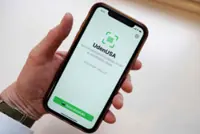Scams are common on peer-to-peer payment apps, but you can keep your money safe by avoiding questionable payment requests that may be fraudulent, only sending money to people you know and upgrading your privacy settings. While payment apps are convenient, they also carry risks if you use them without first vetting who exactly you are sending money to. — AP
As a frequent PayPal user, I wasn’t surprised to see a payment request on the app pop up. But when I read it, I knew something was wrong.
In the message, a stranger asked me to send them US$699 (RM2,966) in order to get a “refund”. While I instantly recognised the request as a scam, I still felt vulnerable; I didn’t immediately see any obvious way to flag the request as a scam, and with just one click, I could have accidentally sent this stranger a huge chunk of money.





